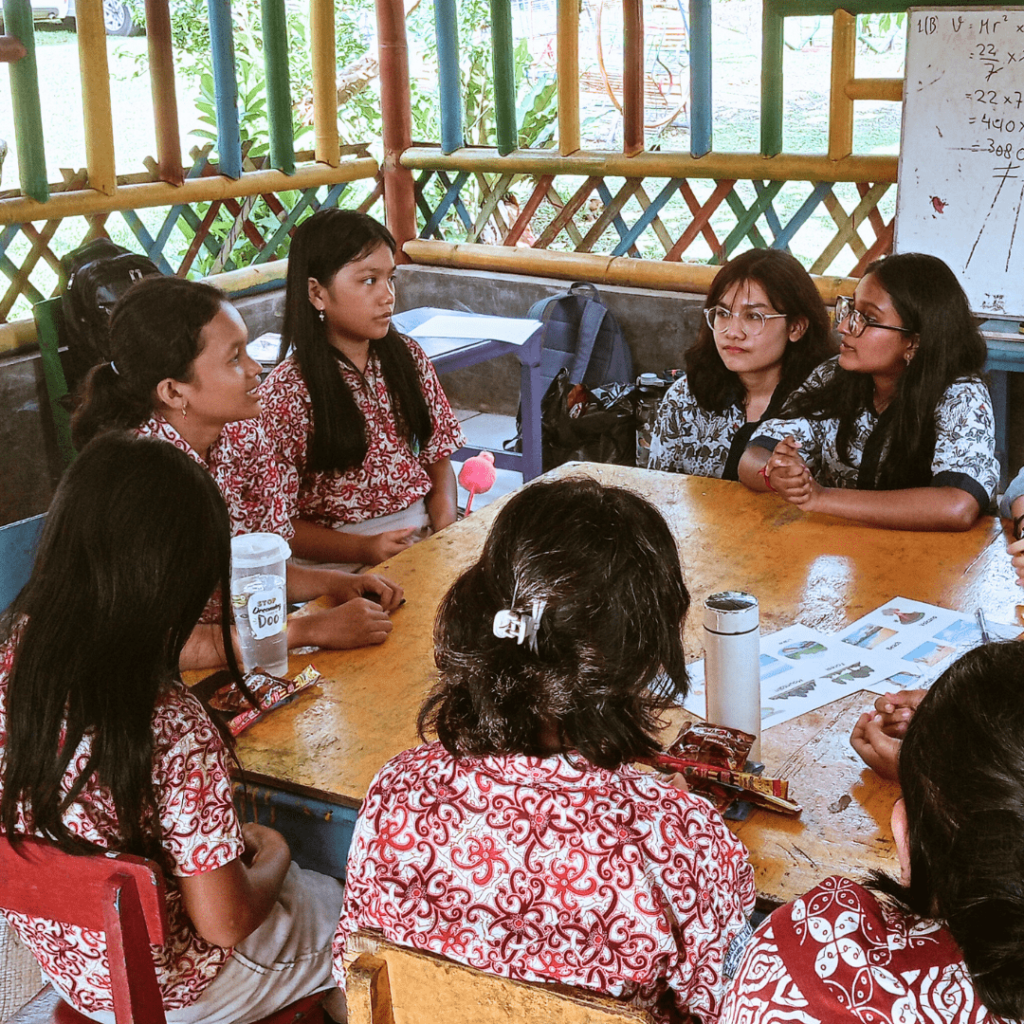PRESCHOOL LEVEL
The learning environment in preschool (for children aged 2-6) facilitates exploration of new activities each day, allowing children to develop fine and gross motor skills, improve social skills such as language and manners, and increase independence and adaptability. Guided by caring teachers, the developmentally appropriate activities are designed to foster curiosity, communication, and confidence.
As children get older, more specific areas of learning are introduced, including numeracy, phonics, Bahasa Indonesia, early science, moral lessons, and physical education, as well as creative arts. Mandarin is also introduced as a foreign language starting at age 4. To enhance creativity and imagination, a variety of fun, thematic activities are regularly offered, such as Costume Day and Culture Day, where role-playing and hands-on learning is emphasized.




